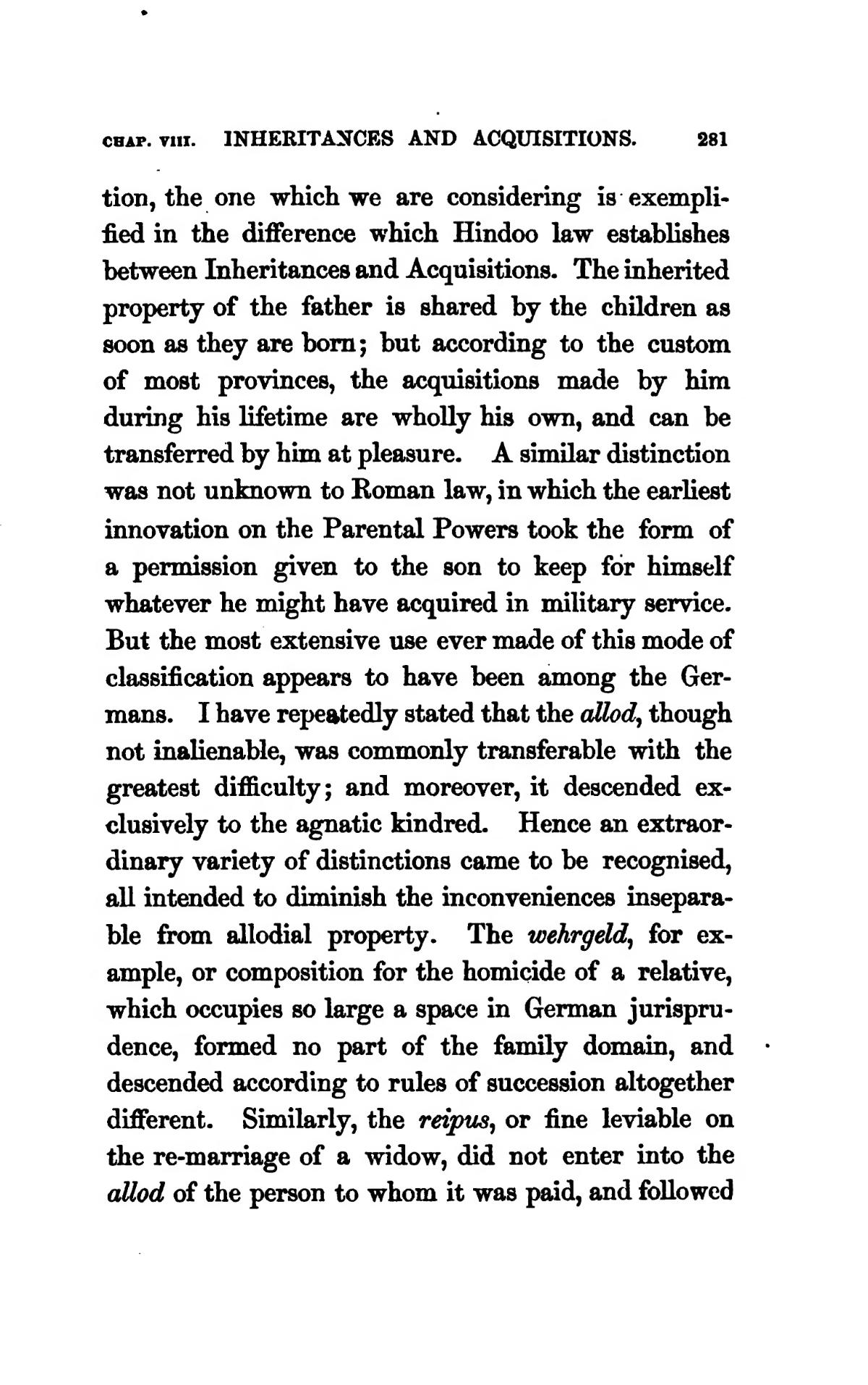tion, the one which we are considering is exemplified in the difference which Hindoo law establishes between Inheritances and Acquisitions. The inherited property of the father is shared by the children as soon as they are born; but according to the custom of most provinces, the acquisitions made by him during his lifetime are wholly his own, and can be transferred by him at pleasure. A similar distinction was not unknown to Roman law, in which the earliest innovation on the Parental Powers took the form of a permission given to the son to keep for himself whatever he might have acquired in military service. But the most extensive use ever made of this mode of classification appears to have been among the Germans. I have repeatedly stated that the allod, though not inalienable, was commonly transferable with the greatest difficulty; and moreover, it descended exclusively to the agnatic kindred. Hence an extraordinary variety of distinctions came to be recognised, all intended to diminish the inconveniences inseparable from allodial property. The wehrgeld, for example, or composition for the homicide of a relative, which occupies so large a space in German jurisprudence, formed no part of the family domain, and descended according to rules of succession altogether different. Similarly, the reipus, or fine leviable on the re-marriage of a widow, did not enter into the allod of the person to whom it was paid, and followed
